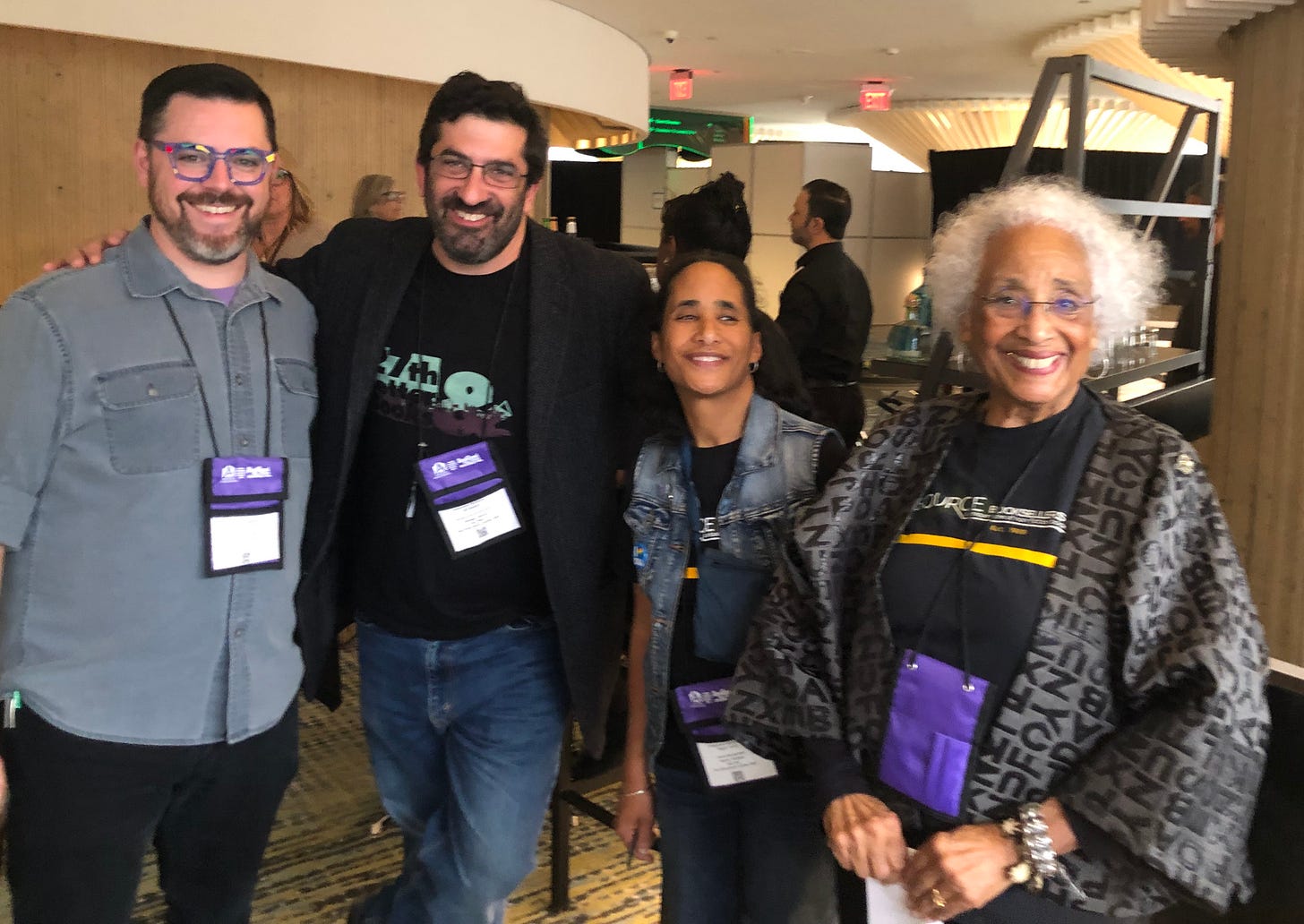Book Post bookselling partners at the Heartland Fall Forum: Danny Caine (Lawrence, Kansas’s Raven Book Store and author of How to Protect Bookstores and Why), Jeff Deutsch (Chicago’s Seminary Co-op and author of In Praise of Good Bookstores, sample in Book Post here), Alison Jones Turner and Janet Webster Jones (Detroit’s Source Booksellers, reflections in Book Post here). They have brought me much wisdom, but they are not to blame for any blunders herein!
Read Parts One and Two of this longwinded post, finally wrapping up!
Reading Danny and Josh’s books brought to mind a recent PEN report called “Booklash: Literary Freedom, Online Outrage, and the Language of Harm” that challenges those who “are pushing to draw new lines around what types of books, tropes, and narrative conventions should be seen as permissible and who has the legitimacy, authority, or ‘right’ to write certain stories.” The PEN report shares some examples with Josh’s book, such as the controversies around Jeanine Cummins’s novel American Dirt, while its thrust goes in the opposite direction, questioning the curatorial impulse to exclude from view books that cause harm. One of their—younger—informants, speaking of the effect of such books on staff, echoed language used by Josh: “Those in senior positions are forgetting that there is surely a duty of care to their staff that must be considered when asking them to work on books by authors with views that might potentially directly oppose their identity and existence.”
Keep reading with a 7-day free trial
Subscribe to Book Post to keep reading this post and get 7 days of free access to the full post archives.




